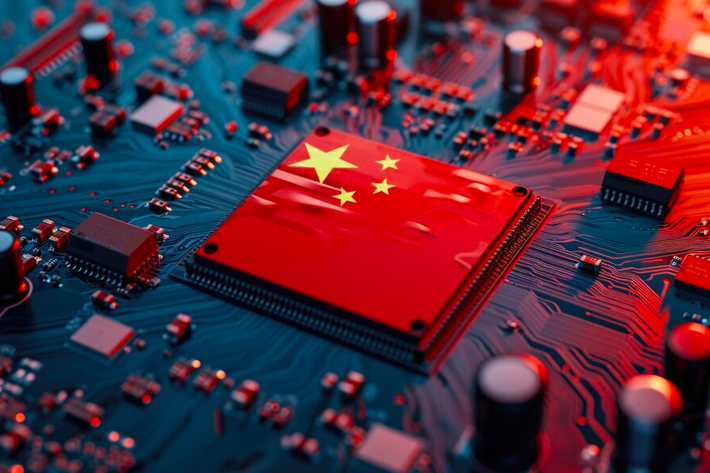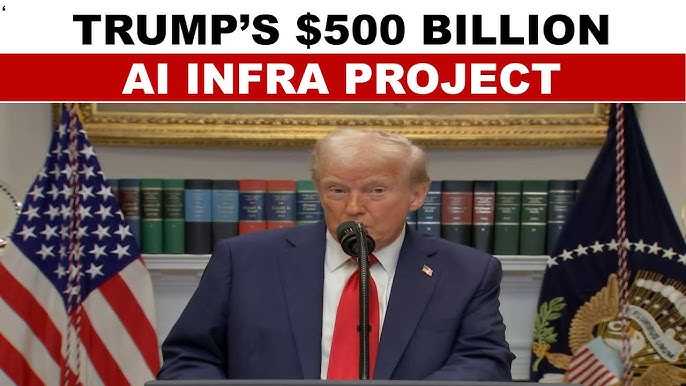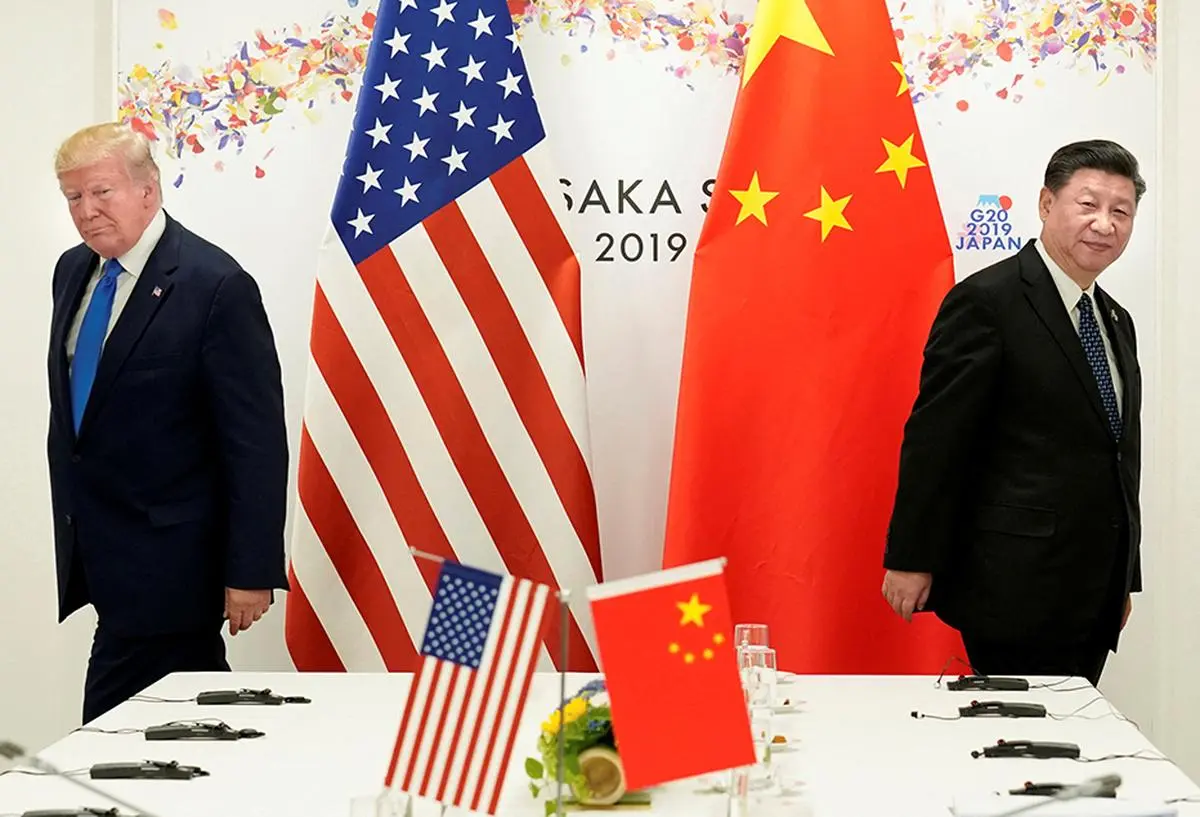Trump's Energy Promise Key to Stargate Project's Future

January 30, 2025
The ongoing development of the Stargate Project, a highly ambitious space exploration and energy innovation initiative, is facing a critical juncture. With significant global implications for space exploration, energy production, and U.S. national security, the project hinges on former President Donald Trump's long-standing pledge to drive energy independence through alternative and renewable energy solutions.
In his tenure as president, Trump made bold promises regarding the United States' energy future, emphasizing a move towards energy independence and increased investment in cutting-edge energy technologies. His administration’s support for nuclear power, alongside ventures into renewable sources such as wind and solar, set the stage for ambitious projects like the Stargate initiative. While these promises were initially viewed as part of his broader energy policy, they are now seen as crucial in shaping the success of the Stargate Project.
The Stargate Project, named after the highly speculative concept of creating energy portals for space travel, is designed to open up new possibilities in both the energy sector and space exploration. Backed by significant private and government funding, it aims to revolutionize the way humanity thinks about energy production, storage, and distribution, and to create new pathways for interstellar travel. The project’s reliance on next-generation energy technologies, including advanced nuclear fusion reactors, solar power satellites, and quantum energy solutions, is directly tied to Trump’s original pledge to reduce the U.S. dependency on foreign energy sources.
The implications of this pledge are far-reaching. Should the Stargate Project succeed, the U.S. could gain an unprecedented advantage in space exploration, allowing for longer and more sustainable missions to distant planets and beyond. This would not only serve to strengthen U.S. global leadership in space but also pave the way for advancements in energy production that could benefit other sectors such as transportation, telecommunications, and even medical technology.
However, the project also faces numerous challenges. One of the biggest hurdles is the required technological innovation and long-term investment. The complexities of developing space-worthy energy technologies, along with the significant financial resources needed, make the future of the Stargate Project uncertain. Additionally, there is the question of political continuity—will the U.S. government maintain the focus and resources required for the project, especially under different administrations? While Trump's energy pledge was a cornerstone of his legacy, future U.S. leaders may have differing priorities that could impact the project’s trajectory.
In the meantime, space agencies like NASA, along with private sector players such as SpaceX, continue to advance the development of space exploration technologies, often under the framework set by earlier policies. The Stargate Project remains a symbol of U.S. ambition in the 21st century, and the promise of energy independence is seen as a cornerstone that could push humanity into the next era of space exploration.
Critics of the project argue that its focus on speculative energy technologies may divert attention from more pressing and achievable energy goals, such as addressing climate change through green energy policies or enhancing current space programs with more practical energy solutions. However, proponents see the project as a necessary leap into the future—one that could bring humanity closer to achieving both sustainable energy independence and the long-term goal of space colonization.
As the Stargate Project continues to unfold, the debate surrounding the role of Trump’s energy pledge in shaping its future is likely to intensify. The project could mark a turning point in how the U.S. approaches both energy policy and space exploration, ultimately determining whether such ambitious ventures can become a reality or remain the stuff of science fiction

Chinese AI App Raises National Security Questions in US
A new powerful AI app developed in China is causing concerns in Washington due to its potential impact on national security, data privacy, and economic competition. US officials are closely monitoring its development

Trump's Energy Promise Key to Stargate Project's Future
Former President Trump's energy pledge is seen as crucial to the success of the Stargate Project, with significant implications for the future of space exploration and energy independence

Understanding the Impact of the US Investment Ban on China
The US investment ban on China is now in effect, marking a significant shift in economic relations between the two nations. Here's what it means for investors and businesses

US Finalizes Restrictions on AI Investments in China
The US has finalized new regulations to restrict AI investments in China and impose further restrictions on technology and defense sectors, escalating tensions between the two nations

Stargate AI Plan: Tech Giants Unveil $500bn Investment
Major tech giants have unveiled the Stargate AI project, a groundbreaking initiative that could be worth up to $500 billion. The ambitious plan aims to reshape the future of AI

Trump Unveils $500bn Investment in Stargate AI Initiative
Donald Trump has pledged up to $500 billion in funding for the Stargate AI project, a groundbreaking initiative aimed at revolutionizing AI and energy technologies for future space missions

DeepSeek AI Challenges U.S. Tech Dominance, Trump Responds
DeepSeek, a Chinese AI model, has disrupted the U.S. tech landscape, raising national security concerns and challenging Trump’s vision for America’s technological leadership

DeepSeek's Rise: A Game Changer in the U.S.-China Tech Race
DeepSeek’s emergence as a powerful Chinese AI model raises the stakes in the U.S.-China tech rivalry, signaling new challenges for U.S. dominance in AI innovation and national security

The $500 Billion Deal: A New Era in U.S.-China Tensions
A $500 billion deal marks the end of the U.S.-China bromance, as economic competition and strategic divergence take center stage, reshaping the global landscape
The Atlantic Daily
Get our guide to the day’s biggest news and ideas, delivered to your inbox every weekday and Sunday mornings. See more newsletters
.webp)
Ideas That Matter
Subscribe and support more than 160 years of independent journalism.
Subscribe